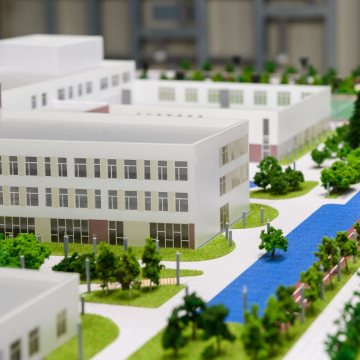Due to the pandemic, the trend towards "healthy" construction is gaining momentum in Russia.

The international building construction standard WELL Building Standard, which focuses exclusively on the health and well-being of the person in the building, is gaining momentum in Russia. The demand for the construction of facilities with a healthy environment has grown in the post-coronavirus period and continues to increase, said Anna Zavaleeva, Communications Director at HPBS, in preparation for the VIII International Forum and Exhibition 100+ TechnoBuild.
The WELL Building Standard is based on scientific research conducted by physicians together with architects for 7 years. Its main goal is to improve the quality of the environment in which people spend most of their time.
"The standard consists of 10 concepts combining 108 criteria and more than 250 requirements – it is a kind of guide for creating sustainable, thoughtful spaces to promote the health of society," says Anna Zavaleeva. – As part of the certification, the project implements solutions to improve the quality of air, water, circadian lighting and other indicators that affect the health and well-being of people in buildings. The project earns points if it uses biophilic design, promotes movement and full sleep, satisfies the needs for healthy food and psychological comfort."
Today, 424 facilities in the world have WELL certificates and about 7000 projects are in the process of obtaining them. A separate WELL direction appeared along with the spread of COVID-19 – WELL Health-Safety Rating. This is the certification of security companies specifically in connection with the new coronavirus infection. There are significantly more such projects – 3,712 have already confirmed compliance with the requirements, including buildings in Moscow, St. Petersburg, Yekaterinburg, Volgograd, Ryazan and Samara.
According to Anna Zavaleeva, today deciding on the WELL certification process is a challenge for developers, as it is a new and difficult procedure. If the project team nevertheless decided to receive such a certificate, it registers its project with GBCI. Each solution implemented in the project that meets the requirements of the standard scores points. All the results are reflected in the WELL digital platform, which is unique for each project. It takes into account the characteristics of the object and can serve as a basis for decision-making.
The WELL certificate is valid for three years. This is followed by a recertification process with repeated performance verification by an independent laboratory. Data on the quality of water, air and the quality of the building's operation are transmitted to the certification body annually.
The costs of WELL certification are higher compared to other types of certification, such as LEED and BREEAM, due to more time-consuming verification procedures. However, experts believe that healthy construction will continue to develop.
"Human health is a priority, it affects the company's performance indicators, including productivity, involvement in the company's activities and risk tolerance," notes Anna Zavaleeva.
It should be noted that at the 100+ TechnoBuild, which will be held at the Yekaterinburg-Expo IEC, a separate section will be devoted to healthy and green construction.

